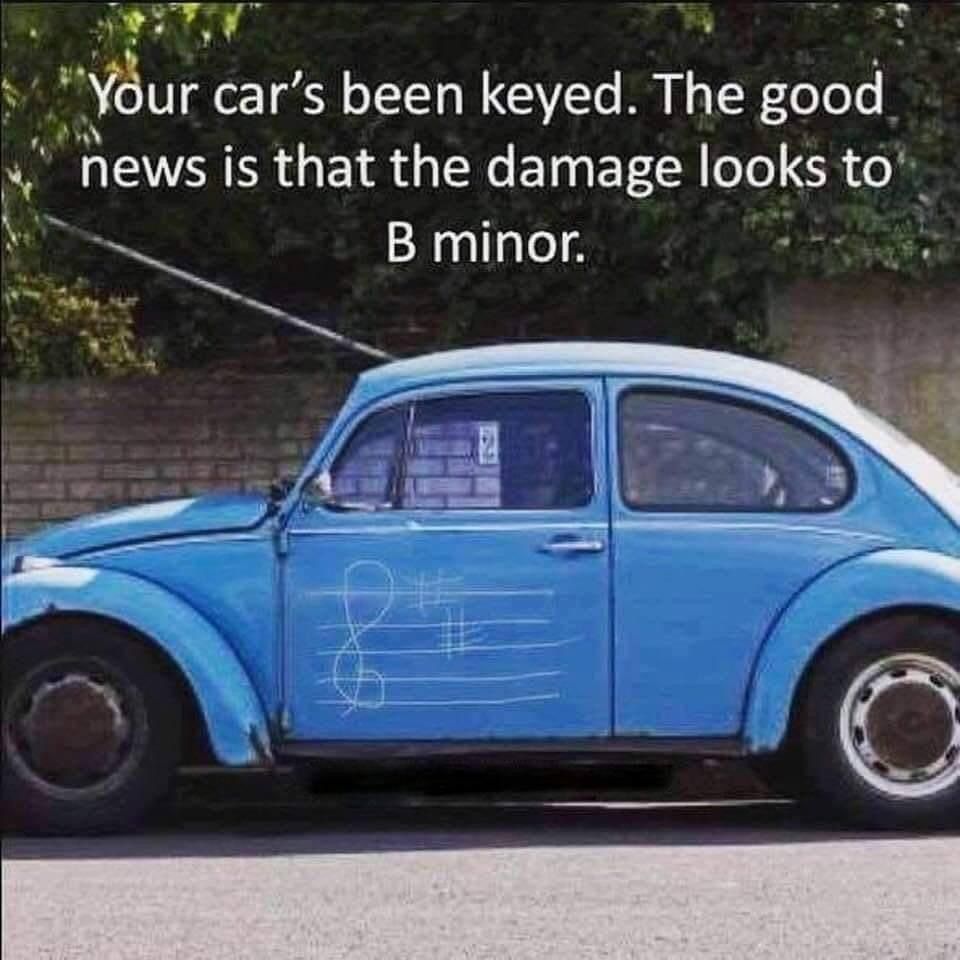Yes, that was a steal! I can tell by the pinky hook that it’s an older one, too, from the ‘70s or earlier. I have a standard 43 from 1976 and it’s been a keeper since I bought it in the early 1980s.
Posts made by Dale Proctor
-
RE: Latest Stealposted in Bb & C Trumpets
-
RE: >OLDS Recording...posted in Bb & C Trumpets
Congrats on the Recording! I know what it’s like to finally find a great example of a horn you’ve looked for forever. Hope you enjoy it.
-
RE: To Reduce Covid-19 Risks in Orchestras, Move Wind Instruments to the Sidelinesposted in Medical Concerns
The prescription for covid safety and a good performance go hand in hand where I’m concerned. The farther away I am, the better I sound...lol
-
RE: Curry Mouthpiecesposted in Mouthpieces & Accessories
I had another rehearsal last night for a July 4 patriotic concert. About a 2 hour rehearsal, and I was a little spent by the end, having barely touched a horn for the last 14 months. I used my new Curry 3C on the old Bach 184 cornet again, and am really happy with its playability and my endurance on it. If I’d thought about it, I would have had Mark make me one years ago.
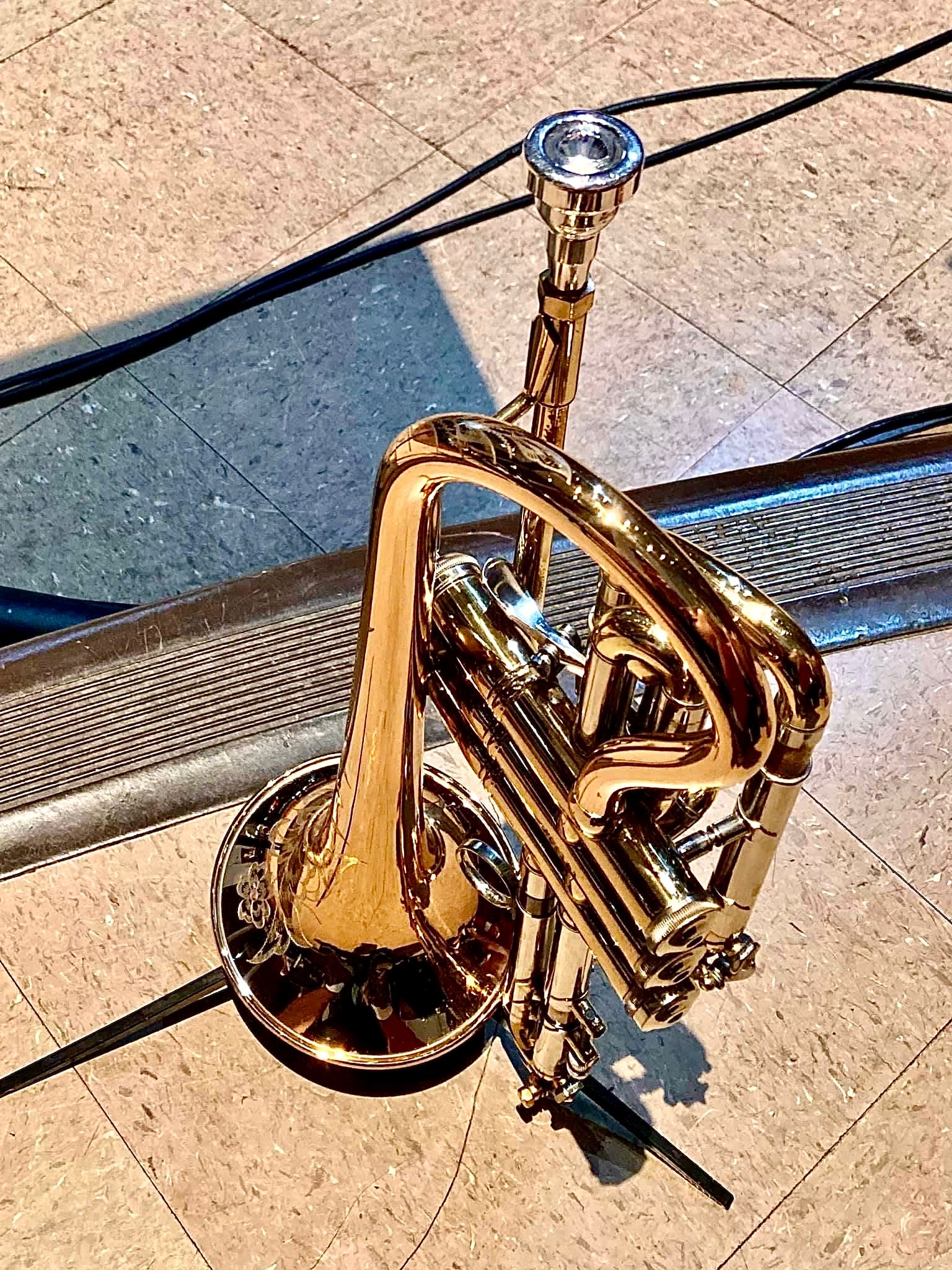
-
RE: How is this possible?posted in Pedagogy
I’ve seen something like that in trumpet music, and was told tied notes with staccato markings were to be soft-tongued with enough emphasis to for two distinct notes to be slightly heard.
-
RE: Jaeger Brass moving to Germanyposted in Lounge
@trumpetsplus said in Jaeger Brass moving to Germany:
@trumpetsplus I already have the Resonance Enhancers and my special trigger linkage system for additional valves (Quarter tone, Ascending C/D, in tune Bb/C, double bell) plus the range extender third valve slide, I expect to do more of this type of work, and such other custom work as comes up.
I have the resonance enhancers on both my Bb Strads, the trumpet and cornet. They really do work, and a friend of mine is using them too after borrowing one of my sets and deciding he wanted some. You can see them between the valves on this picture.
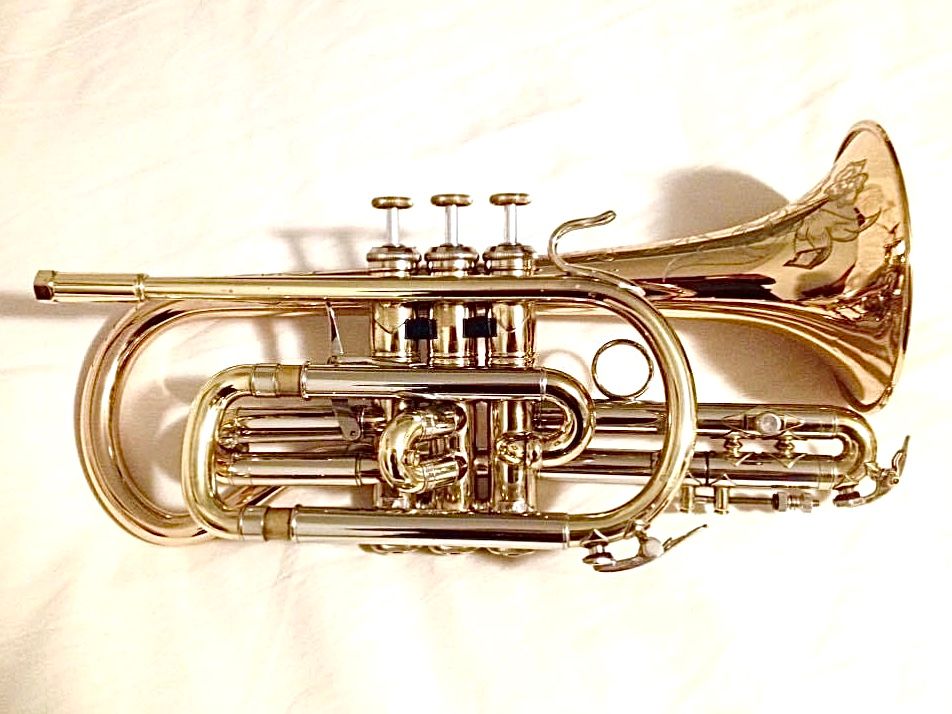
-
RE: Jaeger Brass moving to Germanyposted in Lounge
Good luck in your new digs. Hope everything works out well for both of you. Do you speak any German?
-
RE: Body Mapping for Trumpet Playersposted in Medical Concerns
I’m trying to break the pinky ring habit as we speak, and also paying attention to my posture and breath support while playing. As I’m getting older, I need to stop making things harder than they need to be.
-
RE: Curry Mouthpiecesposted in Mouthpieces & Accessories
Well, I took my Bach 184 cornet and new mouthpiece to a rehearsal tonight, a large church orchestra that was meeting for the first time in 14 months. We worked on a few things for this coming Sunday, and then concentrated on patriotic music for a July 4 outdoor concert.
I always say the best way to evaluate a new horn or mouthpiece is “in the heat of battle”, and not in your safe place at home. Playing with a group, under a relentless baton will really test the intonation tendencies, crispness of articulation, endurance, range (both high and low), ease of dynamics, and flexibility of tone a mouthpiece produces.
That said, this Curry 3C. cornet mouthpiece is everything I hoped it would be for this type of playing. Yes, it’s early on in the mouthpiece honeymoon phase, but so far, so good. A good first impression is a good thing for me, because a bad first impression just about always results in a mouthpiece I eventually sell, even after giving it weeks of playing - they just never come around.
Anyway, a good time was had by all, the cornet/mouthpiece combo functioned well in a section of about 8 trumpets, and I’ll update this again after I gain a bit more experience with it.
-
RE: Curry Mouthpiecesposted in Mouthpieces & Accessories
I ordered a “custom” Curry 3C. cornet mouthpiece from Mark a few weeks ago and received it today. Just opened the box and took a couple pics for posterity. I’m about to try it out, and I will post my impressions of it in a week or two.
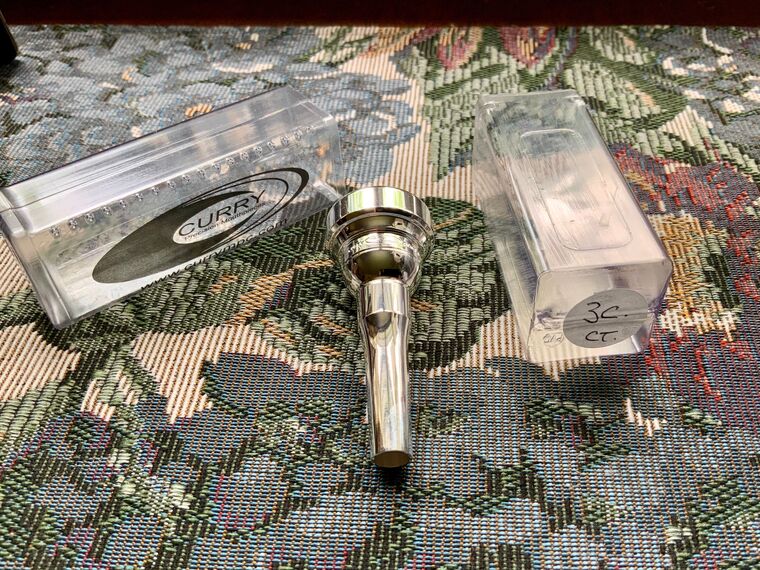
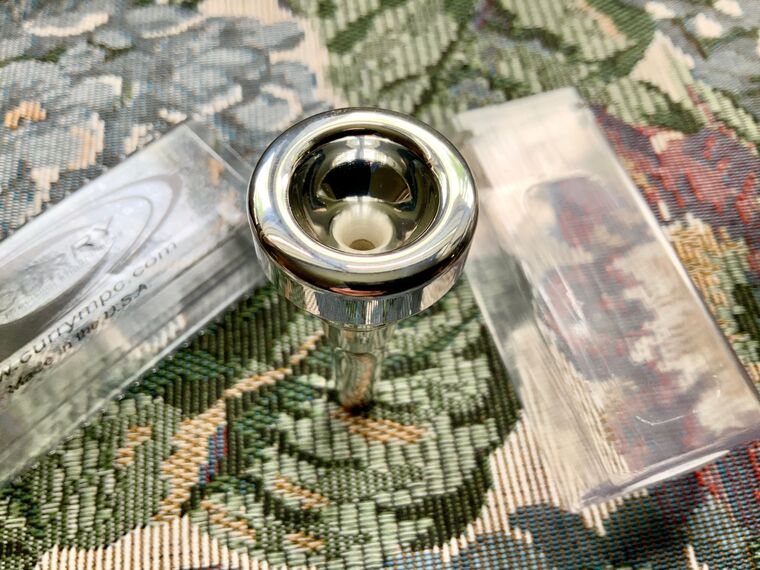
-
RE: The value of scalesposted in Etudes and Exercises
@barliman2001 said in The value of scales:
Trumpet player to antiques dealer: "Can you really tell me the value of scales?" - "Of course. They are not rare - though rarer as they should be. They are usually not in perfect condition - and nobody really, really wants them. No value at all."
They are of great value to fish, though...
-
RE: The value of scalesposted in Etudes and Exercises
@administrator said in The value of scales:
@trumpetsplus said in The value of scales:
I have never practiced scales, although I am proficient in all keys. I play music in all keys. Scales are not music. I know a lot of music and the only example that I can think of of a scale being successfully used in music is the Pas de Deux near the end of Nutcracker ballet.
I'm intrigued to read this. I remember spending countless hours on my 2-octave scales in high school.
I never learned all my scales in high school, and there are a few I’m sure I still don’t know...lol
-
RE: Traits that make a great sight reader?posted in Music Discussion
@georgeb said in Traits that make a great sight reader?:
Well at 85 I wouldn't mind having an app that played the dang trumpet for me. I just play for the applause anyway.
I guess you could buy one of those electronic bugles that plays Taps and use it for military funerals, but there would be no applause...
-
RE: Traits that make a great sight reader?posted in Music Discussion
@bigdub said in Traits that make a great sight reader?:
@dale-proctor said in Traits that make a great sight reader?:
What we really need is an app that just plays the dang trumpet for us...
I know you don’t want that
Of course I was joking, but I don’t want to follow the bouncing ball on an iPad that turns the pages for me, either...

-
RE: Traits that make a great sight reader?posted in Music Discussion
What we really need is an app that just plays the dang trumpet for us...
-
RE: Russian horns on eBayposted in Bb & C Trumpets
I’d guess most of us think they’re probably junk and have never owned or played one.
-
RE: Olds Recording 1951 era plays flat.posted in Repairs & Modifications
I had an Ambassador that was hopelessly flat for some reason, and I finally resorted to shortening the tuning slide receivers and the slide legs about 1/4” so I could push in a bit more. I would have gone a bit shorter than that, but a brace pad was in the way. I don’t know if I’d do that to a Recording, though...
-
Wired after a Gigposted in Miscellaneous
Here’s a question I’ll throw out there.
How many of you have played a late night gig, concert, rehearsal, etc., and when you get home you’re too wired to go to sleep? It happens to me about every time, and I have to unwind before going to bed. That’s especially difficult if you have a day job and have to get up early the next morning to go to work. About the only time it doesn’t happen is if I have an hour or two drive home from an out of town gig, and then I’ve already unwound by the time I get home.
-
RE: Keying ~fingeringposted in Etudes and Exercises
I don’t think finger position on the valve buttons or in the pinky ring really matters, as long as it feels natural and doesn’t slow you down.
